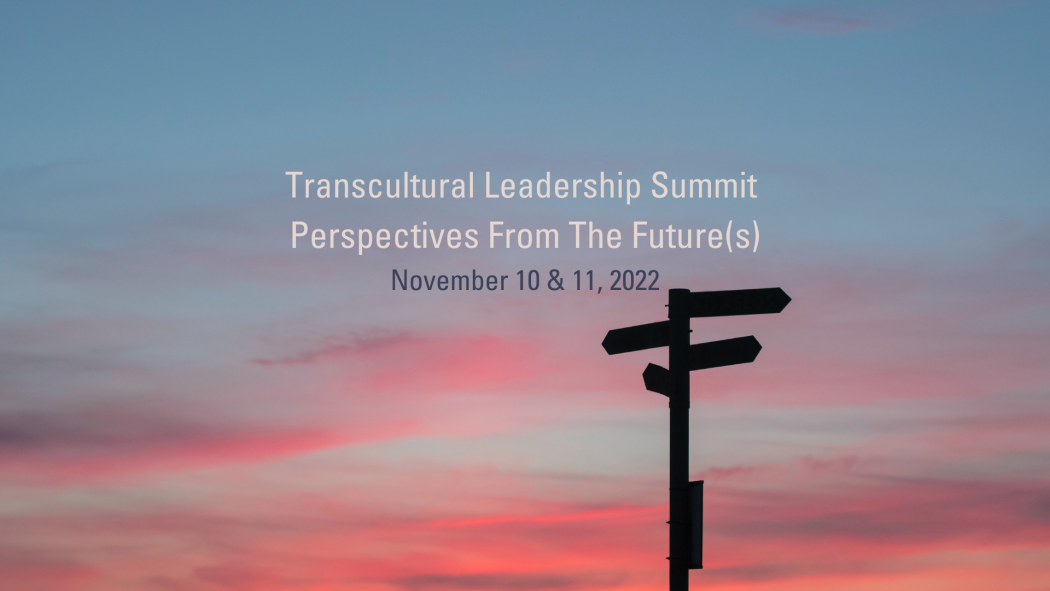Interview with Dr. Stefan Bergheim and Lena Tünkers

On the second day of the Transcultural Leadership Summit (11th of November 2022), we invite our participants to join a Futures Literacy Laboratory on transcultural leadership. In different stages and interactive activities, the participants will codesign alternative visions of the futures.

Tobias Grüenfelder asked our facilitators Dr. Stefan Bergheim and Lena Tünkers a few questions to understand the idea of Futures Literacy Laboratories.
Dear Stefan and Lena, what is Futures Literacy? What does it mean to be “futures literate”?
Futures Literacy is the ability or capacity to use the future – and more so its plurality and diversity – with different methods for the present. In other words, people can be literate in using futures, just like writing or reading. At the core of this capacity lies the understanding that there is not one future that can be predicted with 100% certainty. Instead, Futures Literacy indicates the presence of multiple probable, desirable but also alternative futures which solely exist in our imagination. Our imagination is therefore the key to unlock the futures we are able to see and which further influence our behaviors, mindsets and thoughts in the present. Coming back to being literate: Everyone is using futures for the present, mostly unconsciously. Did you check the weather forecast this morning and dress accordingly? There we go, this is one way of using futures for the present. There are many other ways of using futures, most of which we unlearned over the years and only seldomly use today.
Why is Futures Literacy important?
Roughly two years ago the global human population was hit by an unknown virus which changed our way of being, thinking and acting from one day to the next. Additional turbulences followed, moving us through a time of constant change. What do the past years taught us? We can never know what lies ahead as everything that we call ‘the future’ will always be uncertain.
We heard it many times: The complexity of our world is growing and with that the degree of uncertainty we experience. With that being said, more unforeseen events might happen in the future.
Why is Futures Literacy important? It’s an essential capacity for the 21st century to deal and navigate in uncertain and complex times. It’s not about foreseeing future events, it’s about being capable of acting even though we can’t foresee and know. Thus, we need to use multiple ways of using futures, instead of focusing solely on predictions and trends. We need to strengthen our imagination in order to access multiple futures and illuminate our steps in the present. Then we can act with a wealth of opportunities in our hands.
What is a Future Literacy Laboratory? What do participants experience at a Futures Literacy Laboratory?
A Futures Literacy Laboratory (FLL) is the method that is accessing, training and using the capability of Futures Literacy and was invented by Riel Miller at UNESCO in 2012. The method implies a process consisting of four phases: Reveal, Reframe, Rethink and Redo. Normally a group of people is going through this process together drawing on the collective intelligence. That means they work in a co-creative manner to make their diverse perspectives visible. It’s never about discussing or agreeing on what is right and what is wrong – as nobody of us has been to the future – rather the method tries to open up a multitude of possibilities and enrich people’s frame and meanings of the world.
Your facilitators:
Dr. Stefan Bergheim
Dr. Stefan Bergheim was trained as an economist in the USA and in Germany. He worked on forecasting and trend analysis in the financial industry for companies such as J.P. Morgan and Deutsche Bank. As the director of the think tank “Center for Societal Progress” he focuses on normative methods such as visioning and on the inclusion of seldom heard voices into dialogue processes. In this capacity, he advised the German government on its national well-being strategy. His experience with different ways to use the future is captured in his book “Futures – Open to Variety” (German “Zukünfte – Offen für Vielfalt”). Since 2015 he has been deeply involved with UNESCO’s efforts to strengthen the competence of Futures Literacy. This work included roles as editor and contributor to the 2018 book “Transforming the Future – Anticipation in the 21st Century” and as a curatorial coordinator of the 2019 “Futures Literacy Design Forum”, the 2020 “High-Level Futures Literacy Summit”, and the 2021 conference of the World Futures Studies Federation. As a co-founder of ZUKÜNFTE he designs and facilitates Futures Literacy Laboratories both online and onsite in English and in German for companies, associations, governments, and universities.
Lena Tünkers
Lena Tünkers aims to expand people’s capacity to imagine and uses the future to alter perspectives and narratives in the present. After, studying Innovation & Organisational Entrepreneurship, she worked in the field of innovation and business design. First, in a corporate context with HelloFresh, Spotify, and the UN. Then, in the start-up ecosystem in Denmark and Kenya with a focus on frugal innovation, sustainable consumption, and agriculture. Today, she guides people in their work with the future. As a process designer and facilitator, she preferably uses methods from Futures Literacy and Experience Design for change, strategy, innovation, and team processes She is co-founder of ZUKÜNFTE, board member of Founders of Tomorrow, and hosts the House of Beautiful Business in Copenhagen.

